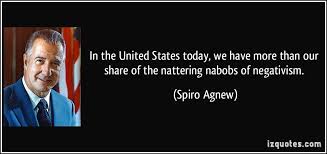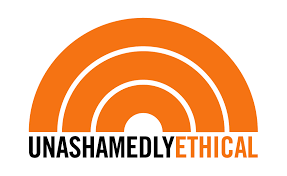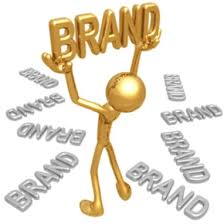The Two Ps of Compliance: Promote and Protect
 I often complain about compliance messaging. Compliance officers have to be careful to avoid becoming viewed as “nattering nabobs of negativism,” as former Vice President Spiro Agnew famously stated about the liberal media.
I often complain about compliance messaging. Compliance officers have to be careful to avoid becoming viewed as “nattering nabobs of negativism,” as former Vice President Spiro Agnew famously stated about the liberal media.
Instead, compliance officers have to unite under the umbrella of positivism, and rely on a two-prong message — promote and protect.
An effective ethics and compliance program promotes the positive aspects of a company, both internally and externally. By promoting a positive culture of ethics, the company will increase profits, improve its employee morale and build pride in the company, its brand and its leadership.
A positive message provides an important critical message to external stakeholders, including consumers, vendors, suppliers, media, competitors, political leaders, NGOs and other important entities in the marketplace. A company dedicated to a culture of ethics can use its culture to build trust with its customers and important constituents.
In the end, a company has to decide on the brand and reputation that it wants to project into the marketplace. A company’s presentation can influence stock market prices, consumer perceptions, and important business partners like distributors and agents.
The Chief Executive Officer has an important role to play in this formulation. The CEO has to recognize that attending to the company’s brand and culture is an important corporate asset that transcends quarterly profits and creates sustainable revenues and growth. CEOs are sidetracked, usually because of quarterly financial incentives, and ignore the importance of corporate culture and branding.
In addition to promoting a company’s culture, an effective ethics and compliance program protects the company from a variety of risks. It is too simplistic to calculate this factor to just avoiding government investigations and prosecutions. From a broader and more accurate perspective, an effective ethics and compliance program protects the company’s culture as an asset that promotes ethical behavior by senior executives, managers and employees.
The laundry list of major companies that have fallen victim to FCPA, sanctions, AML/BSA, antitrust and other significant violations all share one common characteristic – they have suffered a systemic breakdown in their ethics and compliance program. It is too easy to quibble over this point, but take a moment and look at the top 5 FCPA settlements and you will easily see that ethics and compliance played no active role in the company, senior leadership ignored the company’s culture, and instead singularly focused on the bottom line – profits at any price.
I do not mean to ignore the benefits of avoiding a government investigation and prosecution but I would venture to guess that only ten percent of FCPA violators are ever ensnared in an FCPA investigation, and even a smaller percentage are required to settle or defend against a prosecution.
 The protection of a culture of ethics is critical to a company; otherwise, the company can fall victim to a number of negative consequences. It is hard to understand why CEOs and other senior executives cannot comprehend the important benefits of an ethics and compliance program. If they did, CCOs would not be constantly struggling to justify increased resources and
The protection of a culture of ethics is critical to a company; otherwise, the company can fall victim to a number of negative consequences. It is hard to understand why CEOs and other senior executives cannot comprehend the important benefits of an ethics and compliance program. If they did, CCOs would not be constantly struggling to justify increased resources and
expansion of the ethics and compliance function.
The board of directors should be pushing this issue, through the Audit Committee, to the CEO and the CCO. The board’s obligation is not limited to basic monitoring and supervision of the company’s ethics and compliance program, but should manifest in a proactive role — pushing ethics and compliance as an important asset for the company to maintain and increase.
The importance of Promote and Protect as a company’s compliance motto is one that has to be embraced by every important player in creating and maintaining a company’s culture.















